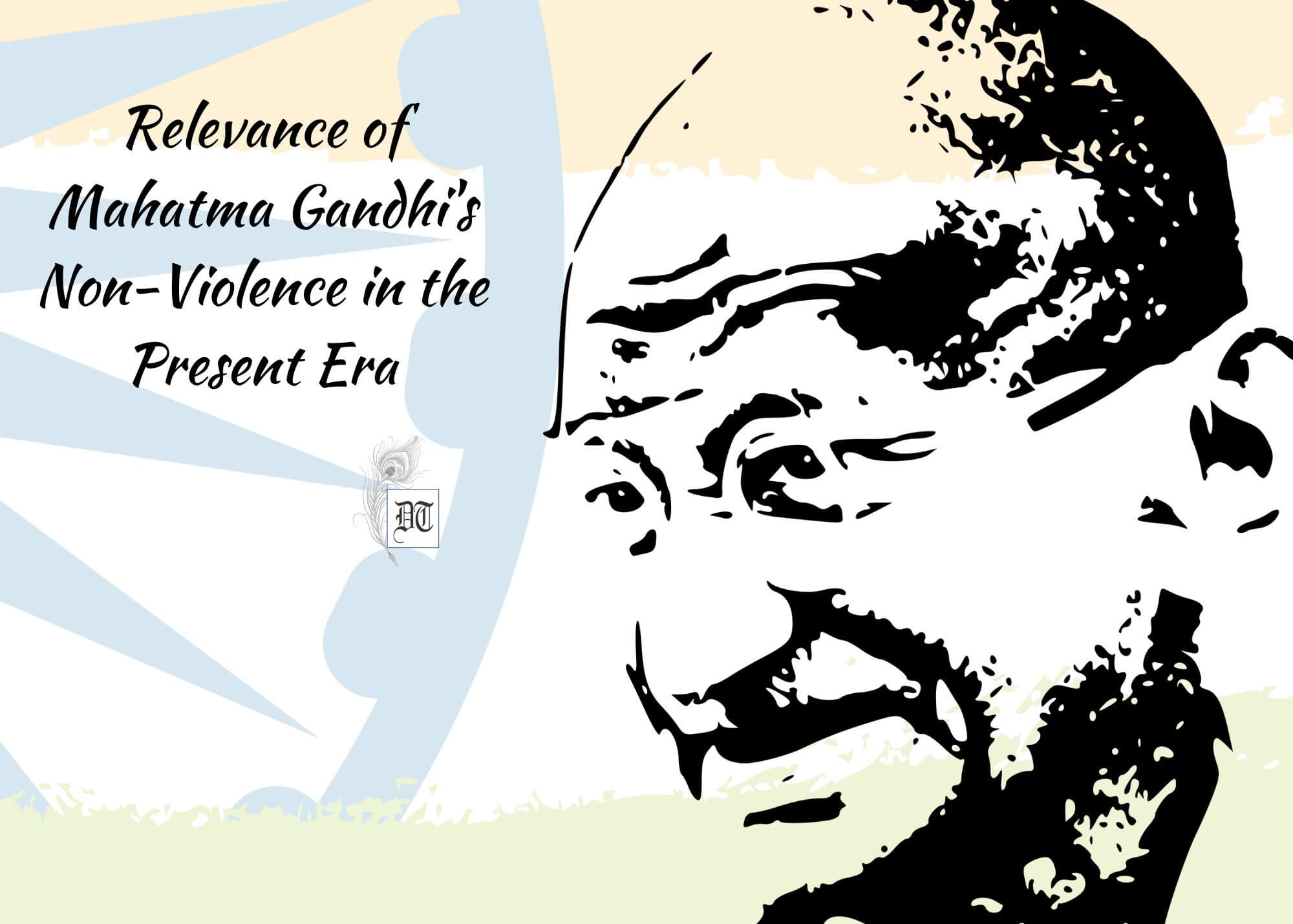Reading Time: 3 minutes
Mahatma Gandhi was assassinated on January 30, 1948. The day is Sahid Diwas (Martyr’s Day) in India. Dr Baljeet pays glowing tributes as Special Feature – exclusively for Different Truths.
Mohandas Karamchand Gandhi, popularly known as Mahatma Gandhi, is known worldwide as an apostle of Non-Violence and Peace. He is also called the Father of the Nation in India for his immense contribution to the country’s freedom. He jumped into the independence struggle in 1915 after landing in South Africa against the exploitative and oppressive rule of the British. He was aware of the enemy’s mighty power and knew well that overcoming them and attaining independence was not easy. But his grit, commitment, devotion, and tenacity of purpose led him to achieve his goal.
To attain his objective, he devised a novel way of resistance against tyrannical British rule in India, which was non-violence.
To attain his objective, he devised a novel way of resistance against tyrannical British rule in India, which was non-violence. He thought it prudent that it was the only effective way to hit the British hard under the prevailing circumstances. Therefore, to propagate it to mobilise people and make them aware of how the British were looting their economy and wealth, he undertook extensive tours of the country’s different regions. During his difficult journeys, he exhorted the people to unite and follow non-violent methods wholeheartedly to fight the British if they wanted deliverance from their yoke. His well-thought-out plan bore fruits. In a short period, hundreds and thousands of men and women, young and old, cutting across all lines of castes and creeds, began to rally behind him at his single call for action.
When Indian Muslims started the Khilafat Movement to support the cause of the Sultan of Turkey, whom they regarded as their Caliph, in the aftermath of World War 1to pressurise the British, Gandhi ji wholeheartedly sided with them to forge Hindu-Muslim unity as an ardent follower of secularism. Consequently, when he started the non-cooperation movement in 1920 with the sole objective of boycotting British Government institutions like courts and schools, etc., the Muslims participated with equal enthusiasm. The movement gave a big jerk to the British government.
Gandhi ji was upset at this violent act and withdrew the movement when it was at its peak.
It is different when emotionally charged people, in a fit of rage, set fire to a police post in Chaura Chauri, Uttar Pradesh, where some policemen were burnt alive. Gandhi ji was upset at this violent act and withdrew the movement when it was at its peak. The Congress leaders severely criticised him for his untimely imprudent action that demoralised the people. But Gandhi ji did not budge from his stand of non-violence.
After a gap of a few years, he commenced the civil disobedience movement by boycotting salt laws; and, finally, the Quit India Movement in 1945, which saw an unprecedented surge of masses, all based on the principle of Non-Violence. Ultimately, India attained independence in August 1947.
But unfortunately, and tragically, this independence brought unprecedented bloodshed from communal clashes between Hindus, Sikhs and Muslims. Gandhi’s heart must have bled on seeing this horrible carnage, which he never expected, for he was a staunch advocate of non-violence and communal harmony. But hardly had he come out of that severe shock when a fundamentalist Hindu, Nathu Ram Godse, fired three shots on his chest from point blank range on January 30, 1948, in the Birla House, New Delhi killing the apostle of peace and non-violence on the spot. Alas! Violence seems to have overtaken non-violence.
Has Gandhi’s policy of non-violence lost its relevance in today’s world of violence?
Has Gandhi’s policy of non-violence lost its relevance in today’s world of violence? It is a moot question that needs to be answered in these turbulent times when the world is marred by violence everywhere. The answer lies in his philosophy of non-violence, which made him famous worldwide as the messiah of peace. His statues adorn most of the world’s capitals and important cities.
Gandhian studies also form part of the syllabi of many educational institutions because of their significance and relevance. Violence has never been a solution to any problem whatsoever. It only brings destruction and devastation of colossal magnitude. It breeds hate, and hate is the root cause of violence. This circle of hate and violence has no end. While nonviolence is the panacea of ills plaguing society today for which humanity is suffering.
Let us, therefore, endeavour to imbibe and give practical shape to the Gandhian philosophy of non-violence for the sake of humanity than to pay mere lip service on January 30 every year at his memorial, Raj Ghat in New Delhi. This will be the befitting tribute to that great leader of the masses.
Picture design by Anumita Roy

















